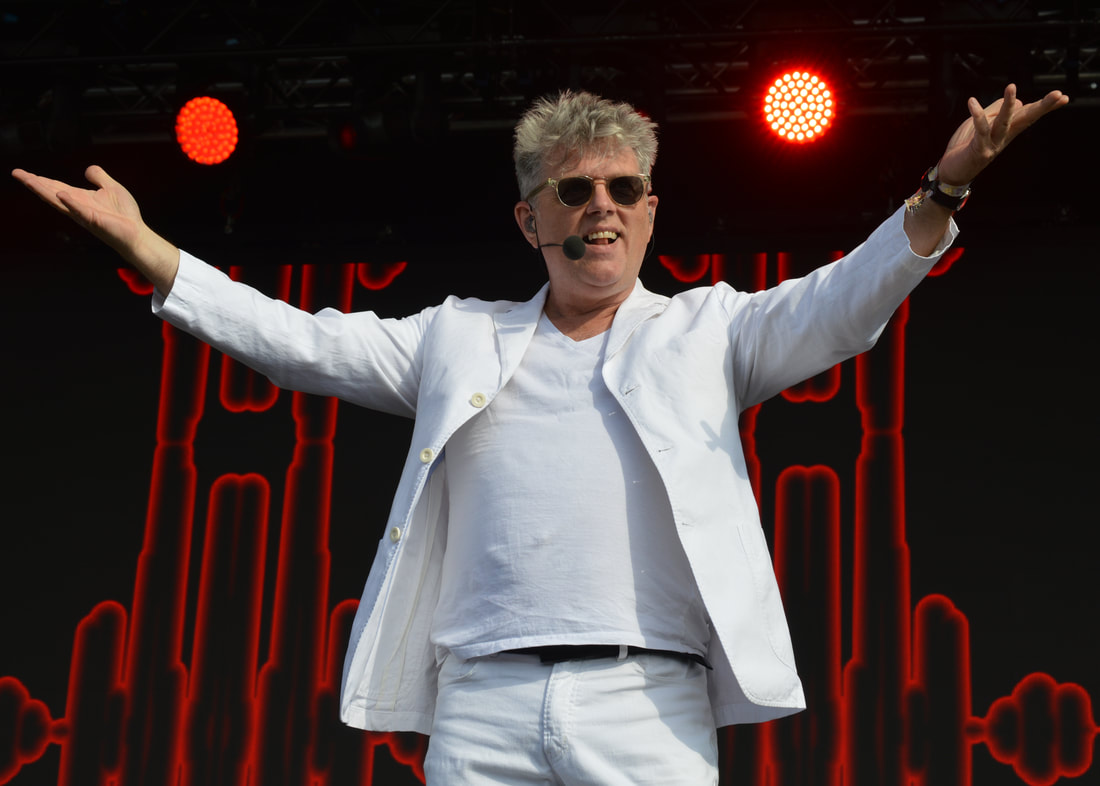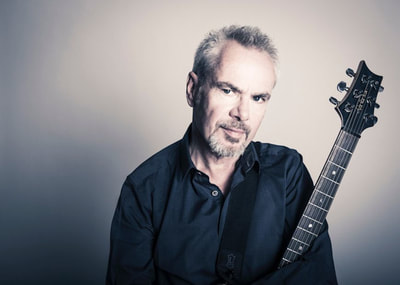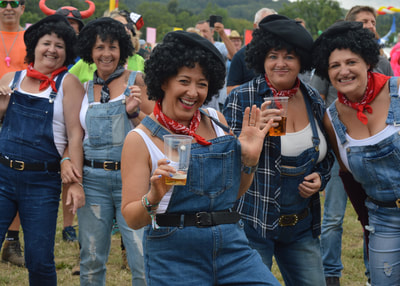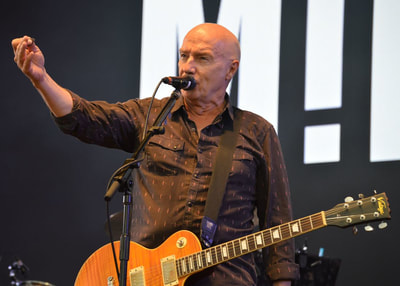|
Tom Bailey can perhaps best be described as pop music’s prodigal son. Following a successful career with Thompson Twins in the early 1980s, the multi-instrumentalist and producer turned his hand to other things, seemingly leaving his pop past firmly behind him for good. After more than two decades away however, Tom has recently rediscovered his love for the music that “gets right to the heart of the matter”. Back with the recently released ‘Science Fiction’, we sat down with Tom for a chat about his return to pop, playing Live Aid in 1985, and giving Madonna her big break. Into the gap; Eamon O’Neill.
Welcome to Rewind Tom; what’s it like to be here?
It’s fantastic. You know, this is where I kind of broke my truce with pop music and got back into bed with it four years ago, so I’m very happy to be here again, yeah. Was that a difficult peace to make? Well, it took a long time, so I guess in that sense it was, but when the time came, it was perfectly natural, and I guess, my fears were allayed at my first couple of gigs. We got on with it. Was that because The Thompson Twins were aligned with the eighties, and for a time that was almost a dirty word? There was a degree of that, and also, personally, I think, I’d moved on, and was involved with so much other kinds of music, that pop music was like a distant memory. And then, you know, it happens, you even start to construct a denial project around it; that was then, and this is now kind of thing – you deny the past – and so it took me twenty-odd years to come to terms with that. You mentioned that you were doing other things. Yeah, I was doing dub, and Indian, and film music, and all those things, which is an explanation – it’s not an excuse, it’s an explanation; I was distracted by other things, for sure. But I think for every artist, there comes a point where a retrospective moment is appropriate, going; “Hang on, what was I doing thirty years ago? Let’s see how we would do that now.” But that’s all very intellectual, but the real reason is emotional; you get in front of an audience and they start singing along with you – it’s an irresistible moment. You must feel that when a crowd gets behind you at a festival like this, to belt out ‘Hold Me Now’ back at you. It’s just the most fantastic thing. In fact, I say rather cheekily that they do half the work by showing up, and it’s true in a way. The music, it comes alive in front of an audience. It’s touching. With a catalogue of hits that you’ve had, was it inevitable that you’d return to pop music?
Yes, I mean, I’m lucky that we had more than a couple of chart successes. I mean, today, it’s very short, I’ve only got thirty-five minutes of something, so there won’t be too much new music, but people want to hear the main hits, so that’s what we’ll do. Your new album ‘Science Fiction’ has just been released, and you’ve said that making it, you found pop music inspiring again; was it reclaiming the past that led to that? It’s partly that; it’s partly reclaiming the past and partly also realising again that it’s the most fantastic thing. There’s something very special about special about pop, partly because of its directness and its economy; it gets right to the heart of the matter. But for me, the reason I got into pop music is I thought it had some weird, cultural power to change things for the better. Like, it’s not just a question of putting notes together and rhyming a few words, it’s feeling that everything you do is in the service of some sort of liberational cause. I used to believe that too; that’s want rock rebellion was all about, that we’re not going to accept things the way they are, we’re going to change them for the better, and I still want that in music. Did you revert to a particular formula for ‘Science Fiction’? The title track really gets stuck in your head. Well, I mean, it’s interesting you say that, because that’s one of the things that makes pop music so interesting to do. You have to tick certain boxes; you have to sing along with the choruses, otherwise it won’t be successful the way it is. So those requirements of good pop writing is what I really enjoy. That’s the challenge, otherwise music is music is music, but when you’re writing pop, you have to not only do that, but get all of it within three minutes fifteen seconds. So there’s a real directness; there’s no beating around the bush. There’s no bullshit involved, you just get on with the job, and that to me is very demanding, it’s very difficult, but it’s supremely satisfying when you get it right. Was it hard work when the Thompson Twin massive success hit in the early 1980s, particularly in America? In a way we were breaking new ground. I think we were seen as something whacky from the U.K. they couldn’t find room for in their kind of rocktastic environment. But it worked, and a few other bands from the U.K. at the time also worked, probably because at the time things were changing with MTV, so the visual helped it along. But we were breaking new ground, and I’ve just been touring in America recently, and I noticed that back in the day we used to do three major cities in Texas – it was too scary to go anywhere else, right? – This time we did eight cities, so it shows that things have relaxed a bit. How did you end up on the Philadelphia bill at Live Aid, rather than the Wembley one?
It was because we were in New York making an album with Nile Rogers, so we thought, rather than go all the way back to London, can we do it in Philadelphia? And then, that led to the unintended consequence of Nile and Madonna and Steve Stevens being in our band! People ask me about that all the time, and I try and be funny and say it gave Madonna a big break, but in fact, it’s usually remembered the other way around. What was it like backstage on that day in Philadelphia? Well, it was fascinating. There were a lot of major, major rock stars there. In fact, speaking of Madonna, I was chatting with her in some sort of outdoor area, between two tents, and some fans were yelling, so I said; “Let’s just step inside”, so we just opened a door and it happened to be the room where they were doing the official photographs. So we walked into this room, and there was Bob Dylan, Mick Jagger, Tina Turner, a couple of the Rolling Stones, and me and Madonna, and significantly, I thought; “Oh, this is not the place for me, it’s for the superstars”, and I turned around and walked out. Madonna stayed in the room. Looking forward, and what’s coming up on the back of ‘Science Fiction’? I’m in the middle of a U.S. tour now, and I’m not even bothering to get back in U.K. time. This is early morning for me! When are you back in the U.K. and Europe for some dates? We won’t sit down until the end of October, and then we’ve got dates in November here. Like this interview? Like us on FaceBook and follow us on Twitter for regular updates & more of the same! 'Science Fiction' is out now via Tom Bailey's web store. For all a full list of live dates, visit Tom's official site. |
|
Tom Bailey
"For me, the reason I got into pop music is I thought it had some weird, cultural power to change things for the better."
© 2016 - 2024 eonmusic.co.ukContact: [email protected]
|




